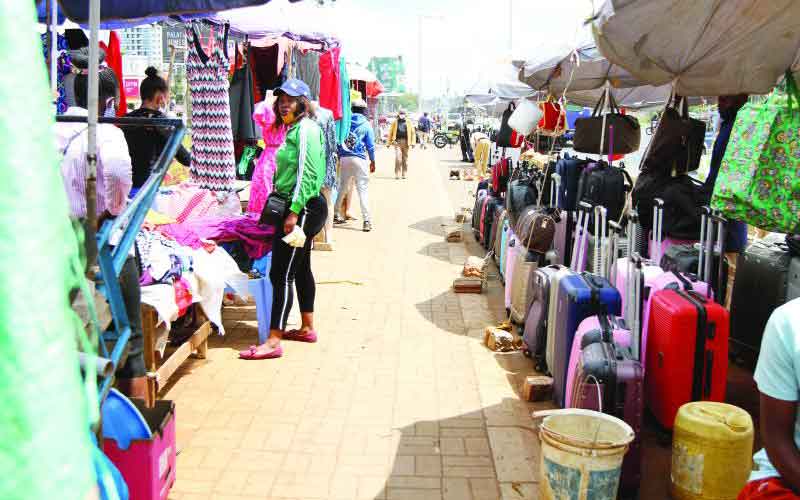×
The Standard e-Paper
Join Thousands Daily

Traders on the walkways on Ngong Road near Adams Arcade shopping centre in Nairobi. [Elvis Ogina, Standard]
General indiscipline and inadequate enforcement of law is clawing back on the gains made to secure the utility of new walkways and cycling paths of an emerging new Nairobi.